Sourdough Low Carb Bread As Bodybuilding’s Secret Weapon
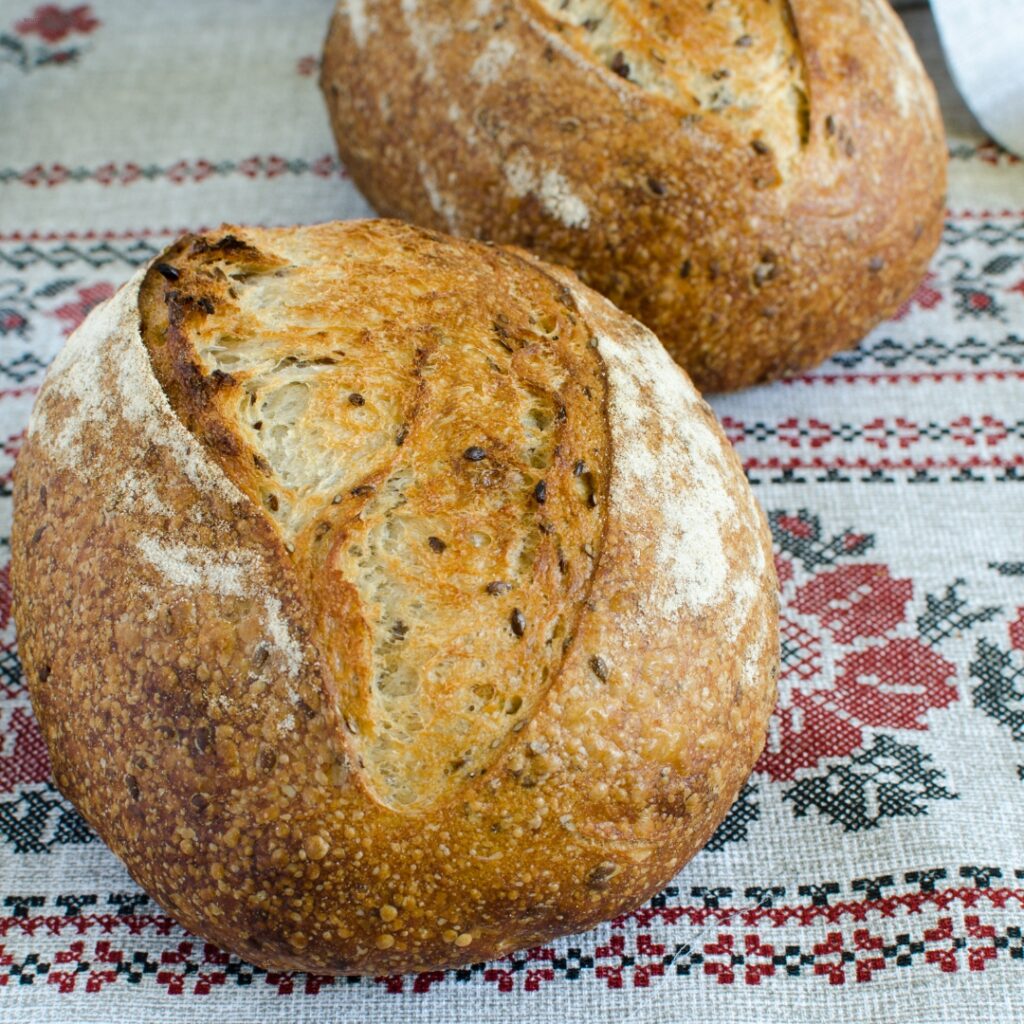
Sourdough low carb bread: As a bodybuilder, you’re always on the lookout for ways to optimize your nutrition and enhance your gains. But have you considered the power of sourdough low carb bread? Enter Sinless Sourdough – a game-changing addition to your bodybuilding diet that could help you unlock new levels of performance and muscle growth.
Why Should Bodybuilders Consider Sinless Sourdough?

Sinless Sourdough isn’t just another trendy food item; it’s a nutritional powerhouse that can support your bodybuilding goals in multiple ways.
Let’s dive into why this low-carb sourdough bread deserves a place in your meal plan:
1. Proteolysis during Fermentation:
The primary way sourdough fermentation improves protein digestibility is through the action of proteolysis, the breakdown of proteins into smaller peptides and amino acids. During fermentation, wild yeasts (such as Saccharomyces cerevisiae) and lactic acid bacteria (LAB) secrete enzymes that break down the proteins in the flour, particularly glutenand other storage proteins.
Proteases: Both yeast and LAB produce proteases, enzymes that cleave the long chains of proteins into shorter chains called peptides or even individual amino acids. These smaller molecules are much easier for the human digestive system to absorb than the larger, intact proteins.
Gluten Breakdown: In wheat-based sourdough, gluten is the major protein. Gluten is a relatively complex protein, and it can be difficult to digest for some individuals. Sourdough fermentation partially breaks down gluten into smaller peptides, reducing its size and making it less likely to cause digestive discomfort.
- Gluten Hydrolysis: Studies have shown that during sourdough fermentation, gluten is hydrolyzed (broken down by water and enzymatic action), which reduces its molecular weight and makes it easier for digestive enzymes to further break it down in the stomach and intestines.
2. Microbial Contribution to Protein Breakdown:
- Lactic Acid Bacteria (LAB): LAB, which are naturally present in the fermentation process, produce lactic acidand also secrete proteolytic enzymes that assist in breaking down proteins in the dough. The LAB species involved (like Lactobacillus and Leuconostoc) have been shown to produce enzymes such as peptidases and proteinases, which further degrade proteins into simpler forms that are easier to digest.
- Yeast Contribution: Yeasts like Saccharomyces cerevisiae also contribute to protein breakdown by secreting proteolytic enzymes. These enzymes act on proteins to reduce their complexity and improve digestibility.
3. Reduction in Anti-Nutrients:
- Phytic Acid Degradation: During sourdough fermentation, phytic acid (an anti-nutrient) is broken down by both microbial enzymes and the natural phytase enzymes present in the flour. Phytic acid normally binds to proteins and minerals, which can make digestion and absorption of these nutrients more difficult.
- By reducing the levels of phytic acid, fermentation helps release proteins and other nutrients, making them more accessible for digestion and absorption.
4. Acidic Environment and Enzyme Activation:
- The acidic environment created during fermentation (primarily due to the production of lactic acid) helps activate certain endogenous enzymes in the flour, such as phytase, which break down phytic acid, as well as enzymes like proteases that help further degrade proteins.
- The lower pH (around 4-5) in the sourdough bread dough also denatures (unfolds) proteins, making them more accessible for digestive enzymes to act on them. This denaturation process can enhance the efficiency with which digestive enzymes like pepsin (in the stomach) and trypsin (in the small intestine) break down proteins.
5. Reduction of Protein Complexity:
- By breaking down proteins into smaller peptides and amino acids during fermentation, sourdough bread becomes easier to digest. The digestive system can absorb these smaller molecules more efficiently than larger, intact proteins.
- Gluten: In non-fermented bread, gluten can be difficult for some individuals to digest, and in certain cases, it can cause digestive discomfort or sensitivities. However, sourdough fermentation has been shown to partially hydrolyze gluten, making it more digestible and potentially less allergenic or irritating for some people.
6. Beneficial Impact on Gut Health:
- Gut Microbiome: The fermentation process also introduces beneficial bacteria (lactic acid bacteria) to the gut. These bacteria can have a positive impact on gut health by promoting a healthy balance of gut microbiota, which can aid in the digestion and absorption of proteins and other nutrients.
- Improved gut health can enhance the overall digestive efficiency, which can aid in protein digestion and absorption.
Does Low Carb Sourdough Affect Gut Health and Your Microbiome?

A mouse feeding study conducted by researchers and published in Frontiers in Microbiology in September 2022 compared the effects of white bread containing 40% sourdough (WBS) to yeast-leavened white bread (WB) on mice.
The researchers found that sourdough had several beneficial effects compared to yeast-leavened white bread.
Reduced the glycemic index, suggesting potential diabetes-lowering effects:
Sourdough bread typically has a lower glycemic index than regular bread, meaning it causes a slower and more moderate rise in blood sugar levels. This is due to several factors in the sourdough-making process. The long fermentation breaks down some starches and sugars, making them easier for your body to process. The increased acidity from fermentation slows down how quickly carbohydrates turn into glucose in your blood. Sourdough also contains more resistant starch, which acts like fiber and further slows digestion. The fermentation process changes the bread’s structure in ways that affect digestion speed. Additionally, sourdough’s lower pH may slow down how quickly your stomach empties. All these factors work together to create a bread that’s generally easier on your blood sugar levels than regular bread.
Keep in mind that while the sourdough fermentation process reduces carbs by about 30%, traditional sourdough is still high in carbs, well above the carbs we can enjoy on a low carb diet. That’s what makes Sinless Sourdough so special. It has all the health benefits of traditional sourdough, but without the high carbs.
Better Magnesium Absorption:
Better magnesium absorption due to phytate degradation during fermentation. Fermentation, which happens when making sourdough bread, breaks down something called phytates. Phytates are compounds in grains that can make it harder for our bodies to absorb certain minerals, like magnesium.When the phytates are broken down during fermentation, it becomes easier for our bodies to absorb magnesium from the bread. This means that sourdough bread might provide more magnesium to our bodies compared to regular bread.In other words, the fermentation process makes the magnesium in the bread.
Decreased Total Cholesterol and Triglycerides:
Sourdough bread’s effect on cholesterol and triglycerides is not fully clear. Some studies show it can lower total and LDL cholesterol, especially when made with whole wheat. However, other research finds no significant difference compared to regular bread. The impact may depend on a person’s genetics and the type of flour used. While sourdough might help some people lower their cholesterol, it doesn’t work the same for everyone. More research is needed to understand exactly how and why sourdough affects blood fats in different people.
Showed Anti-Inflammatory Properties:
Studies show anti-inflammatory properties by decreasing pro-inflammatory cytokines TNF-α and IL-6.Sourdough bread may have anti-inflammatory properties, but the exact way it affects specific inflammatory markers like TNF-α and IL-6 isn’t fully clear. Studies show that sourdough fermentation can improve the antioxidant and anti-inflammatory qualities of bread, especially when using certain types of wheat. The fermentation process creates bioactive compounds that can help protect against inflammation in the gut. Some research suggests that sourdough bread might make people feel better digestively, which could be related to reduced inflammation. The beneficial bacteria in sourdough also increase the availability of nutrients and antioxidants in the bread, which might help fight inflammation overall. However, more specific research is needed to understand exactly how sourdough bread might lower TNF-α and IL-6 levels in the body.
Increased Beneficial Gut Bacteria:
Sourdough bread can help increase beneficial gut bacteria like Akkermansia, Bifidobacterium, and Lactobacillus in several ways. It acts as a prebiotic, feeding these good bacteria with its fiber content. The fermentation process used to make sourdough produces compounds that encourage the growth of these helpful bacteria. Sourdough also contains more resistant starch, which acts like fiber and further supports gut bacteria. The bread’s increased acidity and fermentation process make nutrients more available and reduce substances that can hinder nutrient absorption, creating a better environment for beneficial bacteria to thrive. While a mouse study has shown promising results, more research is needed to fully understand how sourdough affects human gut bacteria, as effects may vary based on the bread-making process and individual gut compositions.
The study concluded that sourdough bread consumption led to positive changes in glucose metabolism, mineral absorption, cholesterol levels, inflammatory markers, and gut microbiota composition in mice. It’s important to note that this was an animal study, and further research is needed to confirm these effects in humans. Human studies are still needed to confirm sourdough’s specific impacts on the gut microbiome.
This is what we do know:
Sourdough fermentation process produces beneficial compounds:
- The long fermentation creates lactic acid, which can increase bioavailability of nutrients and break down gluten proteins.
- It produces organic acids and enzymes that improve mineral absorption.
- It forms resistant starch that acts more like fiber.
Potential prebiotic effects:
- The non-digestible fibers in sourdough may help feed beneficial gut bacteria.
- This could potentially increase microbial diversity in the gut.
Improved digestibility:
- The fermentation process breaks down gluten and other compounds, potentially making it easier to digest for some people.
- May be better tolerated by those with non-celiac gluten sensitivity (though not safe for celiac disease).
Probiotic content:
- The live cultures in the sourdough starter are killed during baking, so sourdough bread itself is not a probiotic food.
- However, eating it with other fermented foods could provide probiotic benefits.
Microbiome impacts:
- There’s limited evidence on how sourdough directly affects the gut microbiome composition.
- More research is needed on its specific effects compared to regular bread.
Other potential benefits:
- Lower glycemic index
- Increased free amino acids and protein digestibility
- Antioxidants and nutrients like selenium
How Does Low Carb Sourdough Improve Mineral Absorption?

The fermentation process in sourdough bread production is a key factor in improving mineral absorption. This process takes place also in low carb sourdough. Let’s break down how this works for three essential minerals: zinc, magnesium, and copper.
- Zinc Absorption: Zinc is a critical mineral for bodybuilders. It plays a vital role in protein synthesis, muscle growth, and maintaining healthy testosterone levels. The sourdough fermentation process reduces phytic acid, which can bind to zinc and prevent its absorption. By eating low carb sourdough, you’re potentially increasing your body’s ability to absorb and utilize zinc from your diet.
- Magnesium Absorption: Magnesium is involved in over 300 enzymatic reactions in the body, including energy production and muscle function. It’s also crucial for regulating cortisol levels, which can impact muscle gains. The fermentation process in sourdough low carb bread can increase magnesium bioavailability, helping ensure your body gets the magnesium it needs for optimal performance and recovery.
- Copper Absorption: While often overlooked, copper is an essential mineral for bodybuilders. It works synergistically with zinc and iron for proper absorption and supports connective tissue health. The improved mineral bioavailability in low carb sourdough extends to copper as well, potentially boosting your body’s ability to absorb and utilize this important mineral.
How Can Bodybuilders Incorporate Low Carb Sourdough Into Their Diet?

Now that we understand the benefits of Sinless Sourdough, let’s explore how bodybuilders can effectively incorporate it into their meal plans.
Here is how:
- Pre-Workout Fuel: Consider having a slice of sourdough low carb bread with a protein source about 1-2 hours before your workout. The combination of easily digestible carbs and protein can provide sustained energy for your training session.
- Post-Workout Recovery: After your workout, when your body is primed for nutrient absorption, try having sourdough low carb bread with a high-quality protein source. This can help replenish glycogen stores and provide the amino acids needed for muscle repair and growth.
- Balanced Meals: Incorporate low carb sourdough into your regular meals as a side or base for sandwiches. Its nutrient profile and lower carb content make it a versatile addition to a bodybuilder’s diet.
What Does The Science Say About Sourdough And Muscle Growth?

While research specifically on low carb sourdough and muscle growth is limited, studies on traditional sourdough bread, in general, provide promising insights for bodybuilders.
Here are some ways:
- Improved Protein Quality: A study by Akeson and Stahmann found that sourdough fermentation increased the percentage of total protein that was solubilized after enzyme hydrolysis. This suggests that the protein in sourdough bread may be more easily utilized by the body for muscle building and repair.
- Enhanced Amino Acid Availability: Research has shown that consuming sourdough bread results in higher levels of free amino acids in blood plasma compared to regular bread. This increased availability of amino acids could potentially support muscle protein synthesis.
- Better Mineral Utilization: A systematic review of studies on sourdough fermentation found that it improves micronutrient bioaccessibility, including minerals essential for muscle function and recovery like iron, calcium, magnesium, and zinc.
How Does Sourdough Low Carb Bread Support Hormone Balance?

Hormonal balance is crucial for bodybuilders, and sourdough low carb bread may offer support in this area.
Here are some ways:
- Zinc and Testosterone: The improved zinc absorption from Sinless Sourdough could help maintain healthy testosterone levels. Zinc is a key mineral for testosterone production, and adequate levels are essential for muscle growth and recovery.
- Magnesium and Cortisol Regulation: The enhanced magnesium absorption from Sinless Sourdough may help regulate cortisol levels. High cortisol can negatively impact muscle gains, so keeping it in check is important for bodybuilders.
- Blood Sugar Regulation: The lower glycemic index of Sinless Sourdough can help maintain steady blood sugar levels, which in turn can support more balanced insulin levels. This hormonal balance is crucial for optimal muscle growth and fat loss.
Can Sourdough Low Carb Bread Help With Recovery?

Recovery is a critical component of any bodybuilding regimen, and sourdough low carb bread may offer several benefits in this area.
Here are some ways:
Improved Nutrient Delivery: The enhanced mineral absorption from sourdough low carb bread can support various aspects of recovery. For example, zinc aids in wound healing and immune function, while magnesium supports muscle relaxation and sleep quality.
Steady Energy Release: The lower glycemic index of low carb sourdough means it provides a more steady release of energy. This can help maintain energy levels during recovery periods between workouts.
Potential Anti-Inflammatory Effects: Some studies suggest that the fermentation process in sourdough may produce compounds with anti-inflammatory properties. While more research is needed, this could potentially aid in reducing exercise-induced inflammation and supporting faster recovery.
What Are The Best Ways To Prepare Sourdough Low Carb Bread For Maximum Benefits?
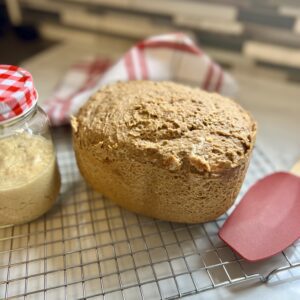
To get the most out of low carb sourdough, consider these preparation methods:
- Lightly toasting can enhance the bread’s flavor and make it easier to digest. This is especially beneficial if you’re consuming it close to workout time.
- For optimal muscle-building benefits, pair low carb sourdough with high-quality protein sources like lean meats, eggs, or plant-based proteins.
- Consider adding sources of healthy fats like avocado or nut butter to your Sinless Sourdough. This can help slow digestion and provide a more sustained energy release.
How Can Sourdough Low Carb Bread Fit Into Different Bodybuilding Phases?

Sourdough Low Carb Bread can be a valuable addition to your diet during various phases of bodybuilding:
- Bulking Phase: During a bulking phase, when you’re aiming to increase muscle mass, low carb sourdough h can be an excellent source of clean, easily digestible complex carbs to support your increased calorie needs.
- Cutting Phase: In a cutting phase, the lower carb content of Sinless Sourdough makes it easier to fit into a calorie-restricted diet while still providing essential nutrients and the satisfying texture of bread.
- Maintenance Phase: During maintenance, low carb sourdough offers a balanced option that can help sustain muscle mass and support overall health through its improved nutrient profile.
Why Sourdough Low Carb Bread Is A Smart Choice For Bodybuilders
Low carb sourdough offers a unique combination of benefits that make it an excellent choice for bodybuilders:
- Enhanced nutrient absorption, particularly for crucial minerals like zinc, magnesium, and copper
- Improved protein digestibility, supporting muscle growth and recovery
- Better blood sugar regulation for steady energy levels
- Potential support for hormonal balance
- Versatility in meal planning and preparation
By incorporating sourdough low carb bread into your low carb diet, you’re not just adding another complex carb source – you’re providing your body with a food that can actively support your bodybuilding goals. Whether you’re bulking, cutting, or maintaining, low carb sourdough can be a valuable addition to your nutritional strategy.
Remember, while Sinless Sourdough offers many benefits, it should be part of a balanced diet. Be sure to eat a variety of nutrient-dense foods. As with any significant change to your diet, it’s always a good idea to consult with a healthcare professional or a registered dietitian. Hunt for one who specializes in sports nutrition.
What Other Low Carb Bread Blogs Might You Enjoy?
Here are a few:
EAT BREAD: LOSE WEIGHT: 13 SHOCKING SECRETS
LOW CARB BREAD’S SECRET WEAPON: SOURDOUGH FERMENTATION
LOW CARB BREAD REVEALED: 21 BURNING QUESTIONS
10 BEST LOW CARB BREADS WITH ALMOND FLOUR
SOURDOUGH LOW CARB BREAD AS A HOLIDAY GIFT OPTION
10 LITTLE KNOWN FACTS ABOUT SOURDOUGH LOW CARB BREAD
FYI: SOURDOUGH MEDICAL STUDIES AND REVIEWS:
Here they are:
- Does Sourdough Bread Provide Clinically Relevant Health Benefits?: Link: https://pmc.ncbi.nlm.nih.gov/articles/PMC10399781/
- The Sourdough Microbiome : Link: https://asm.org/articles/2020/june/the-sourdough-microbiome
- Sourdough Microbiome Comparison and Benefits: Link: https://pmc.ncbi.nlm.nih.gov/articles/PMC8306212/
- Nutritional Benefits of Sourdough; Systematic Review : Link: https://pubmed.ncbi.nlm.nih.gov/36811591/
- Use of sourdough in low FODMAP baking : Link: https://pubmed.ncbi.nlm.nih.gov/29932101/
Disclaimer:
All information provided on this website regarding the health benefits of sourdough low carb bread is intended for educational purposes only. The content presented is not meant to be taken as specific medical advice for any individual. It should not be considered a replacement for professional medical guidance or treatment. If you have any health concerns, especially related to diabetes, pre-diabetes, or any other medical condition, please consult with a healthcare professional immediately.
🔥 UNLOCK MORE RECIPES STARTER + MEMBERSHIP – Only $99 CAD! 🔥
Get a second starter with your membership – the exclusive membership recipes use 2 different low-carb feedings to bake the 3 different styles of breads and baked goods (weight loss, low-carb lifestyle maintenance, fast and easy discard recipes) that will transform your baking game beyond what your current starter can achieve!
💰 PRICING: Regular Price: $198 CAD Today Only: $99 CAD (Only $99 CAD!)
SINLESSSOURDOUGH.COM
Click the Starter + Membership Box
Your Discounted Membership Includes:
🥖 1849 San Francisco Gold Rush Dehydrated Starter: Scientifically validated starter shipped free to your door!
📦 FREE Shipping: Your starter ships to you at no extra cost
🎥 25+ Instructional Video Trainings: Master Keto & Low-Carb Sourdough Baking with comprehensive video lessons
📚 3 E-Sinless Sourdough Cookbooks: Easy-to-follow sourdough recipes for your low-carb lifestyle
📖 3 E-Keto Low-Carb Cookbooks: Delicious low-carb recipes to complement your baking
🗓️ E-28-Day Keto Kickstarter Journal & Planner: Stay on track with your low-carb journey
📝 Keto Low-Carb E-Cheat Sheets & Quick Guides: Shortcuts for perfect baking every time
🍞 Training for 3 Styles of Keto & Low-Carb Sourdough: Learn recipes for weight loss, lifestyle maintenance, and easy discard recipes
💬 Exclusive Community Access: Share tips, ask questions, and get expert support from fellow bakers
🚀 DON’T MISS OUT – GRAB IT FOR Only $99 CAD NOW! 🚀
Transform Your Baking Today:
- Visit sinlesssourdough.com™
- Click “Starter + Membership”
- Proceed to the purchase page
- Enter code: SINLESS50
- Complete checkout and START BAKING guilt-free sourdough immediately!
SINLESSSOURDOUGH.COM
Click the Starter + Membership Box
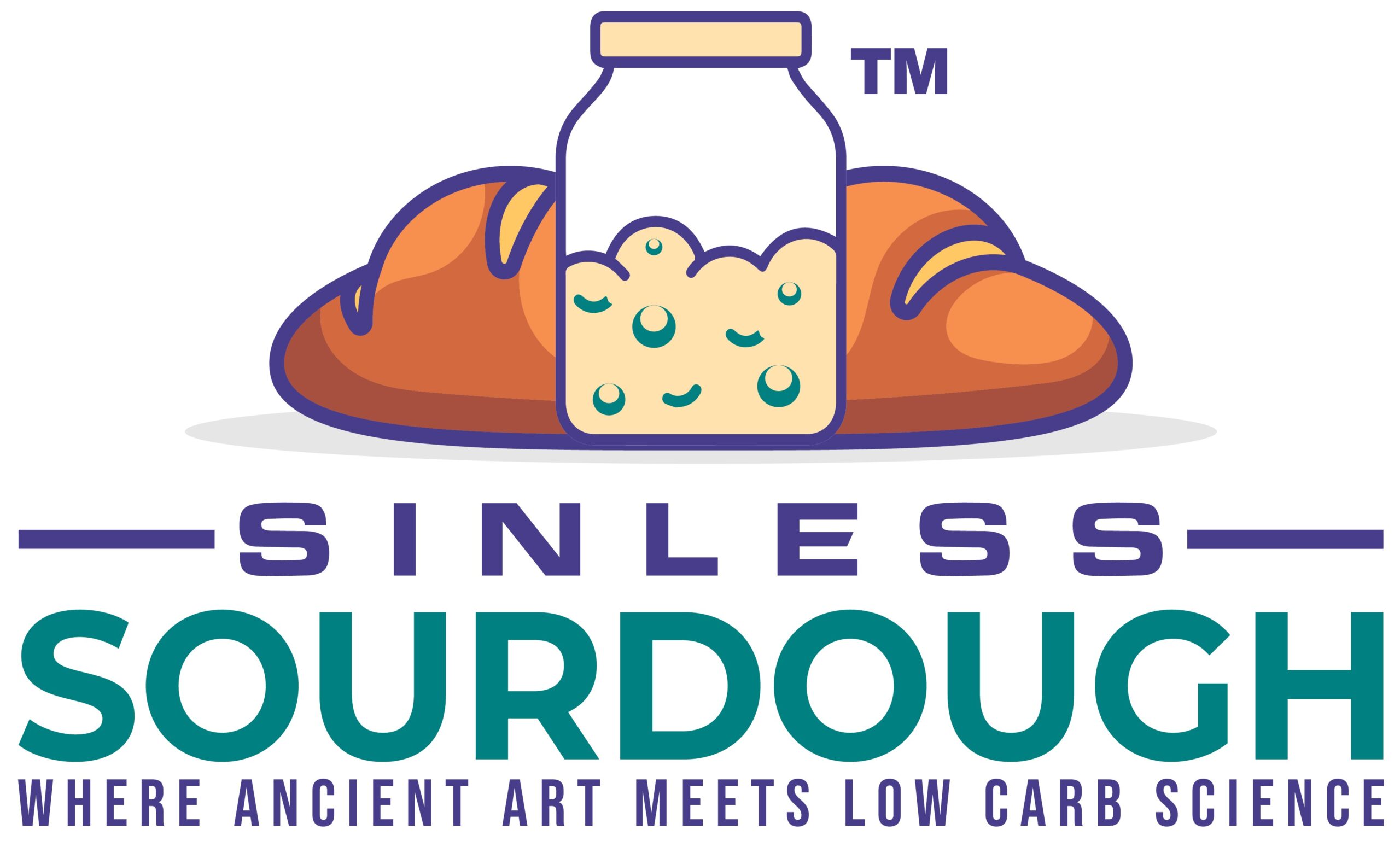




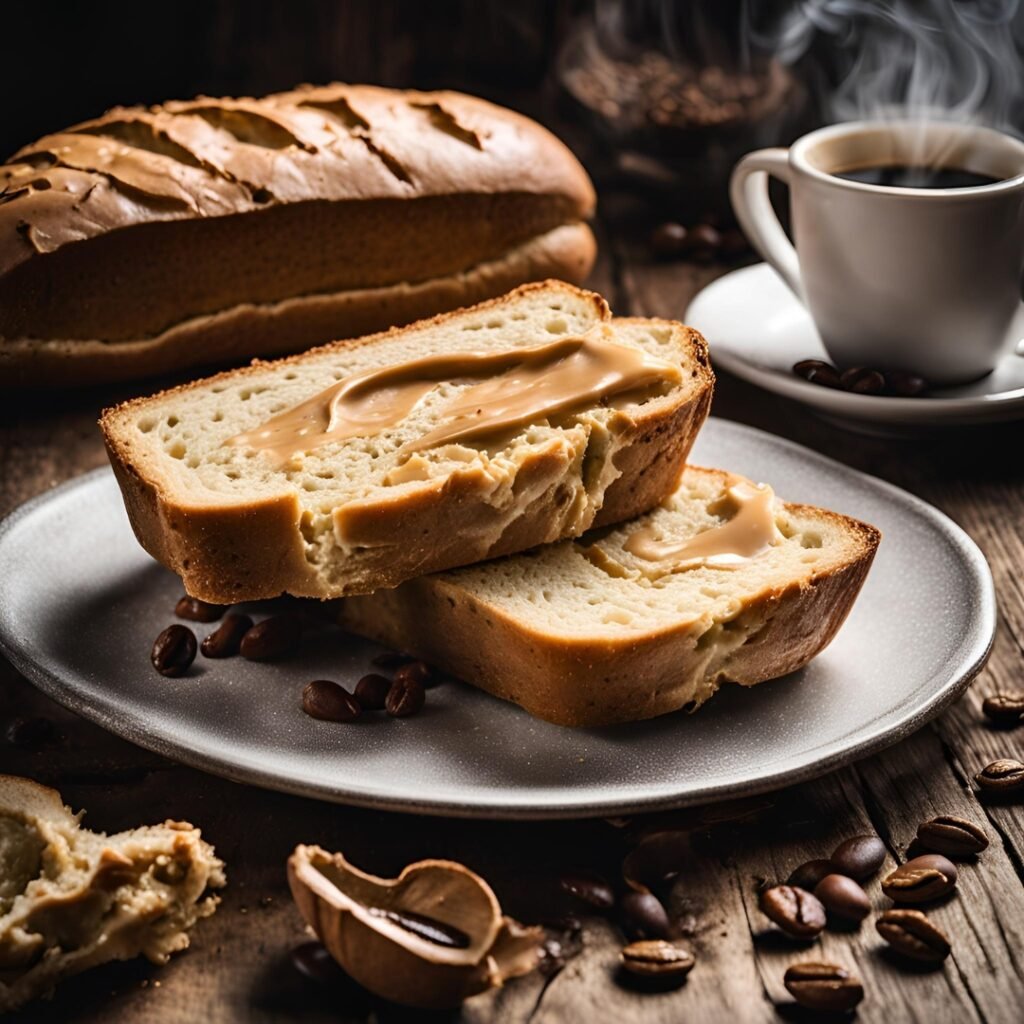
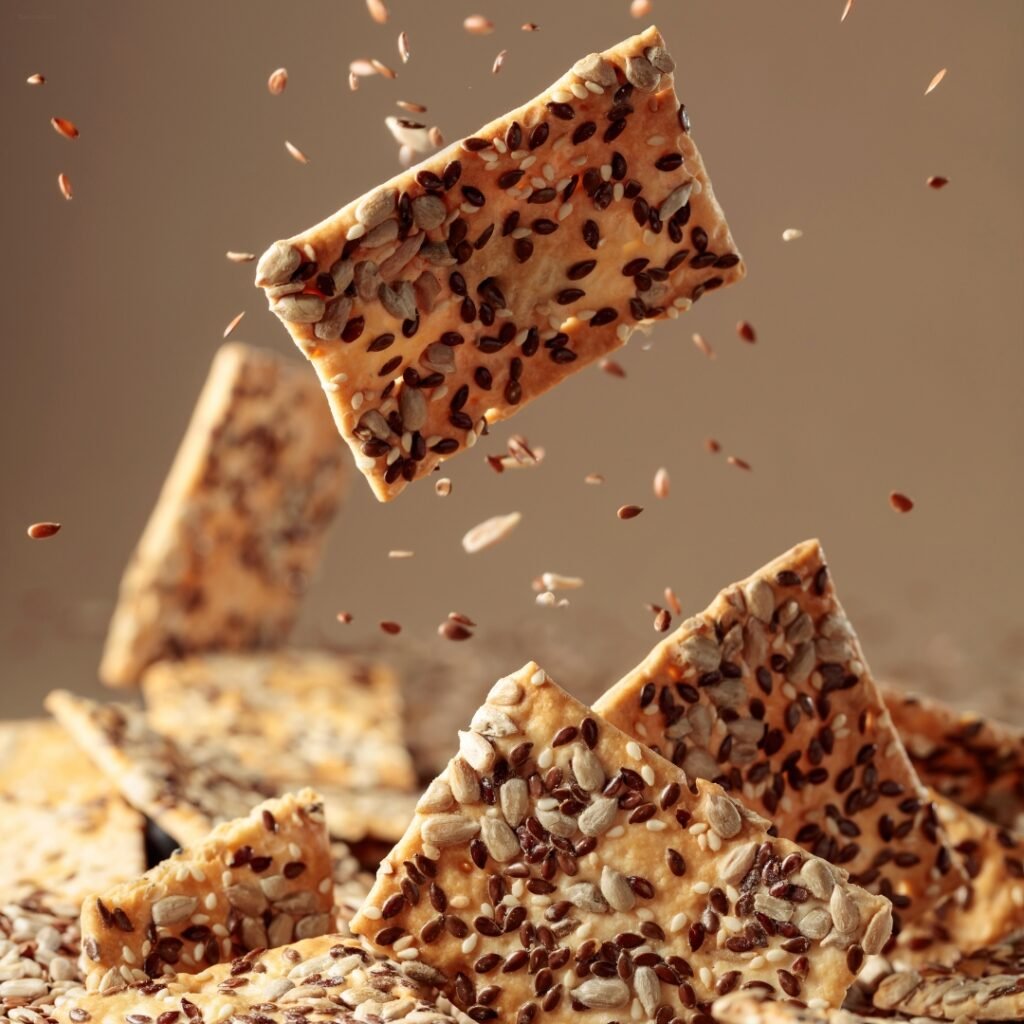
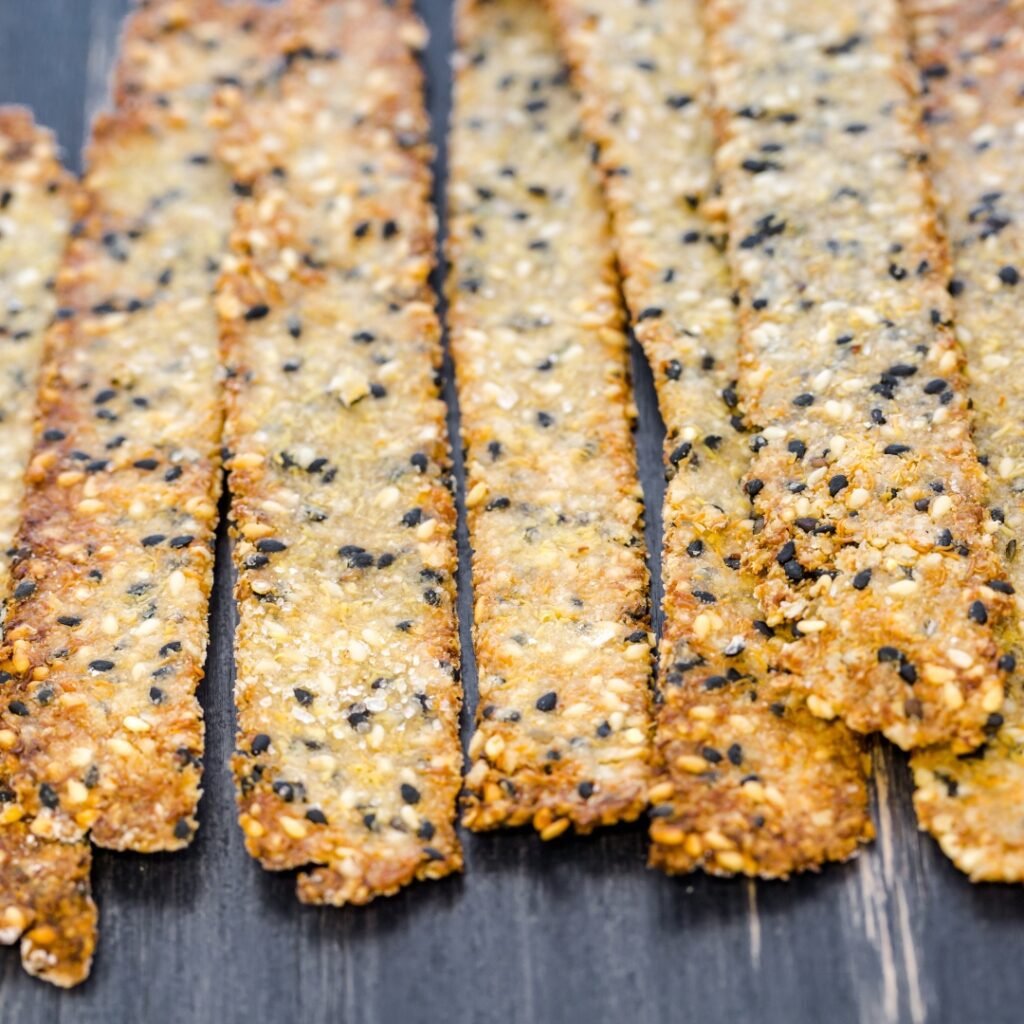
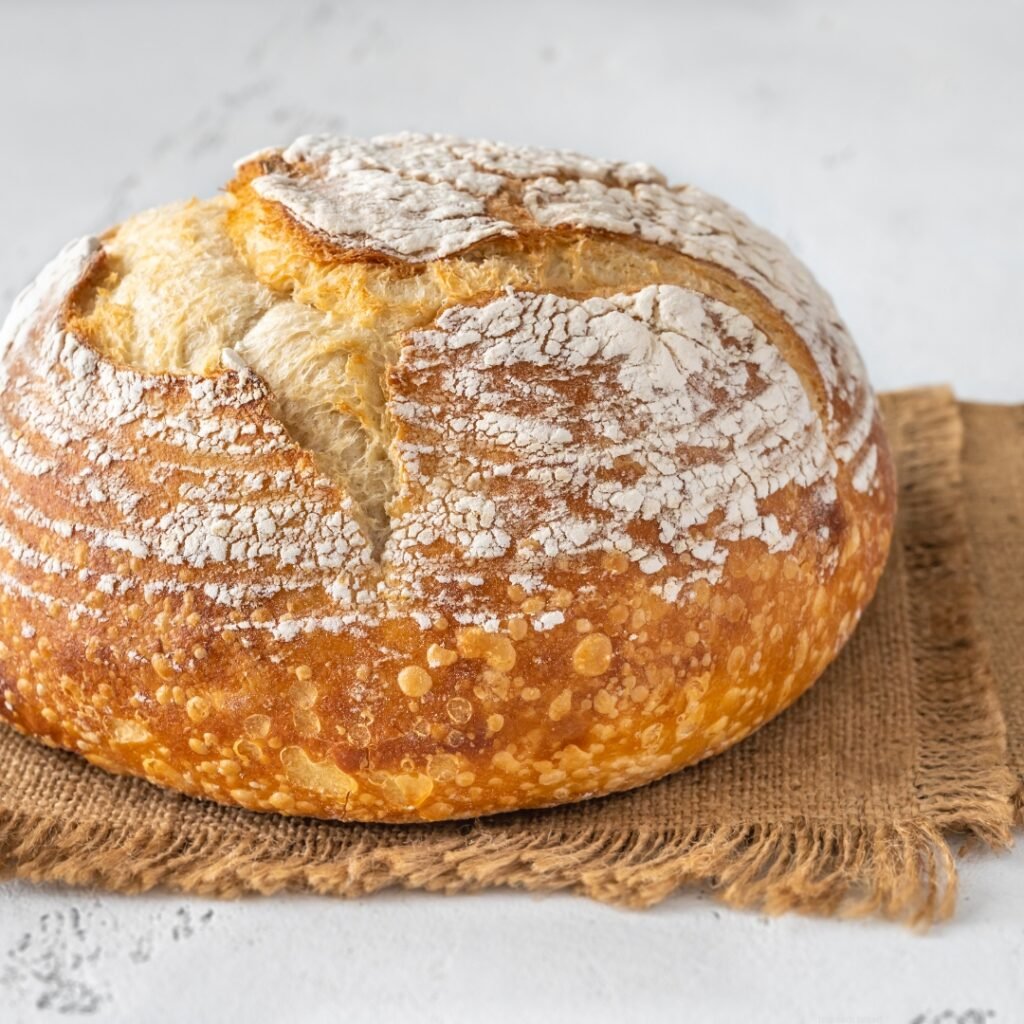
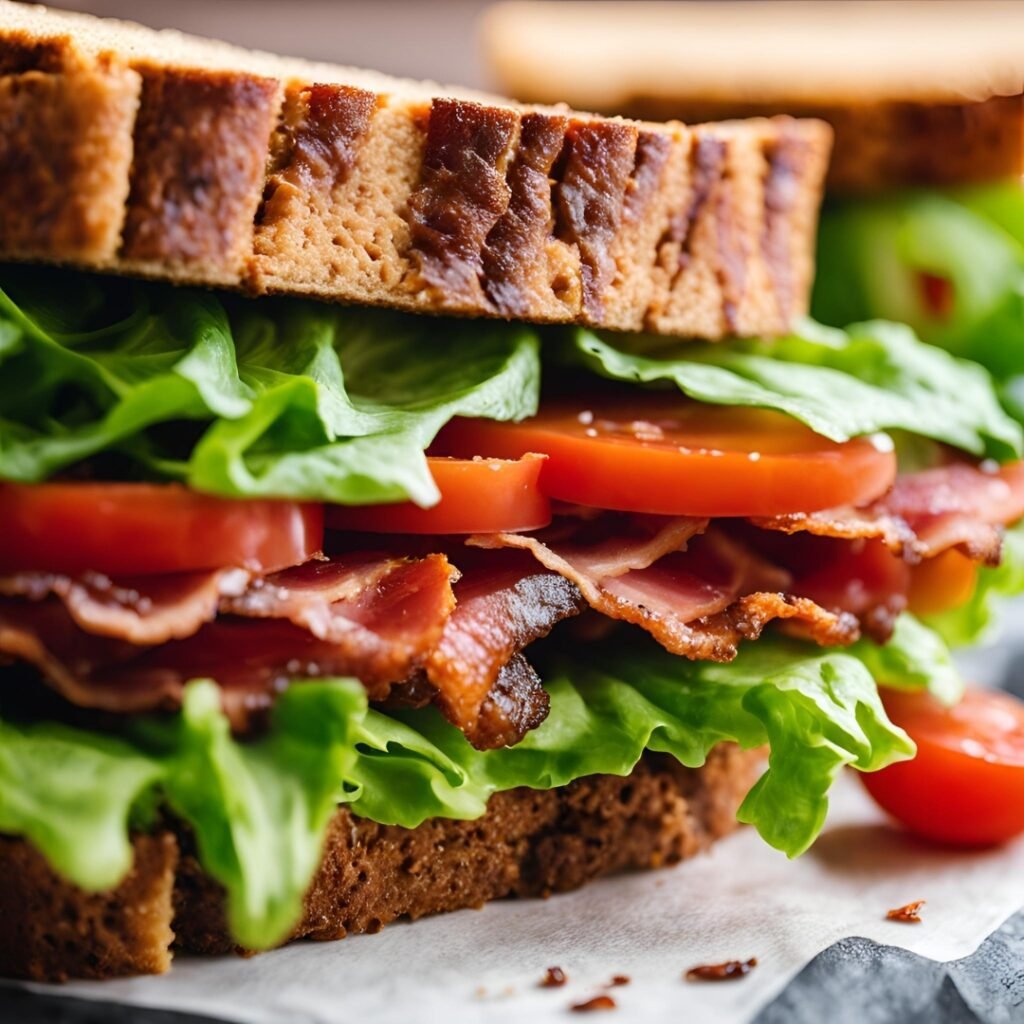

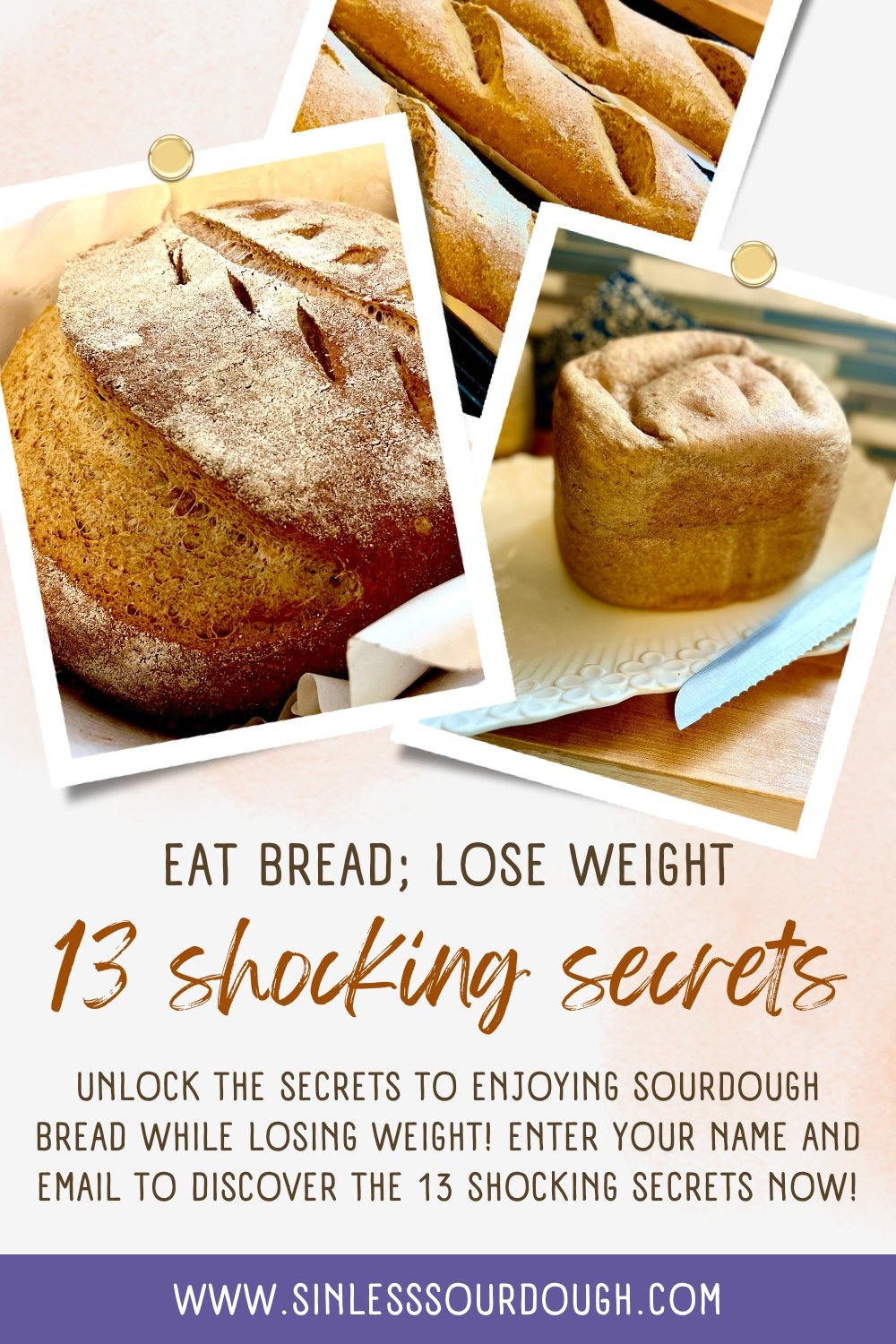
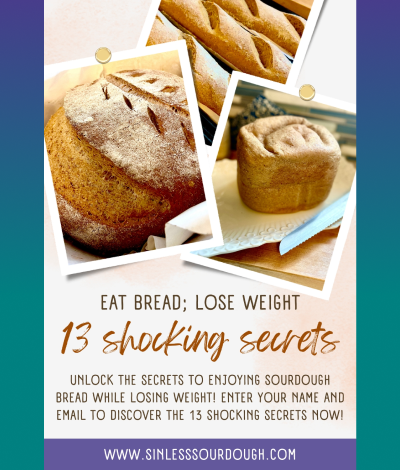
Responses